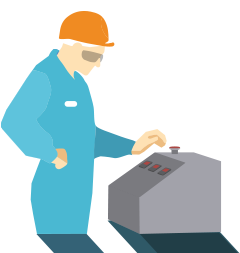Human Error
Incidents and accidents are often attributed to human failures; this view is no longer acceptable to society.
Different reasons contribute to unintentional failures (physical and mental errors: ‘not doing what you meant to do’) and intentional failures or violations
Avoid human failures by consideration of behaviour and performance:
- work systems design to prevent slips and lapses
- designing jobs to avoid the need for tasks which involve very complex decisions, diagnoses or calculations (e.g. providing procedures)
- provide clear, concise, available, up-to-date and accepted by users job aids (procedures, instructions)
- considering potential human errors in risk assessments
References:
- HSE (1999). Reducing error and influencing human behaviour. Health and Safety Executive (HSE), Sheffield.
- Reason, J. (1990). Human error. Cambridge University Press, Cambridge.


